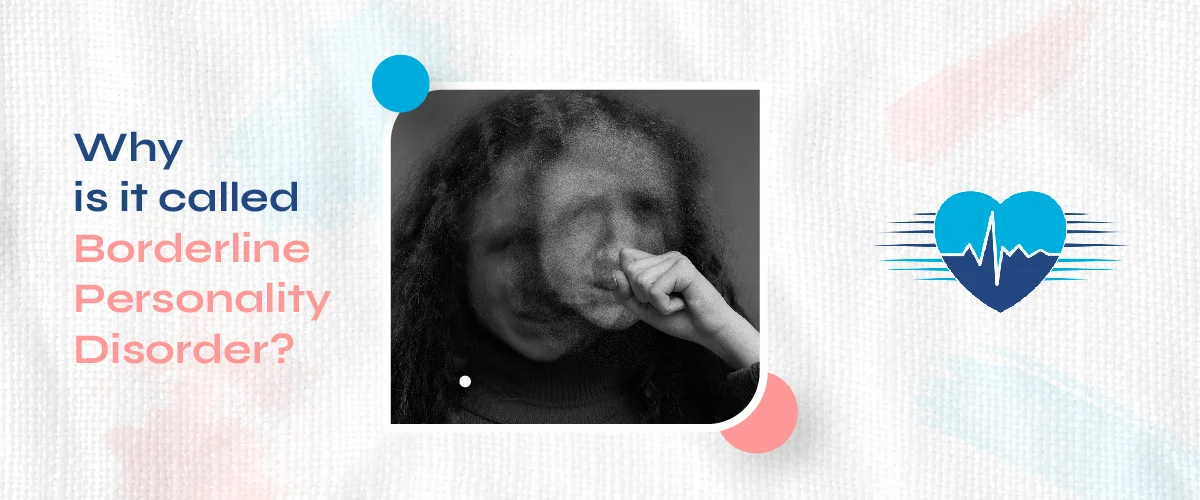Borderline personality disorder, or BPD, impacts how a person controls their emotions and deals with others.
Around 1-4% of individuals, both men and women, deal with BPD, though women are diagnosed more.
BPD is tricky and noted for quick emotional shifts, unplanned actions, and unstable relationships.
So, why is it called borderline personality disorder? Its past naming history offers a key understanding of this illness.
Today Telemedicine is your source for reliable psychiatry help. We specialize in delivering quality help for borderline personality disorder (BPD). Contact us for support and treatment.
What Is Borderline Personality Disorder?
Borderline Personality Disorder, or BPD, is a mental condition. It causes unstable feelings, self-views, and relationships.
People living with BPD might have strong mood changes. They can act without thinking and fear of being left alone.
It influences their self-perception and views of others. This can make everyday life and relationships challenging.
Why Is It Called Borderline Personality Disorder?
Why is borderline called borderline? The term “borderline” was first introduced in the early 20th century. It was used to talk about patients who seemed to sit on the border between neurosis and psychosis.
These individuals did not fit clear categories like schizophrenia or mood disorders. They showed signs of both. So, doctors said they were on the “borderline” of these conditions.
Understanding of borderline personality disorder (BPD) has since changed a lot.
Today, we see it as a unique personality disorder. It has its own diagnosis guidelines and treatment methods. It stands apart from its first label as a type of neurosis or unusual psychosis.
Individuals with borderline personality disorder often experience challenges related to social anxiety. But, borderline personality disorder and social anxiety are not same condition.
What Does a BPD Episode Look Like?
A BPD episode can make someone feel very emotionally unstable. They might go from feeling extremely happy to very sad or angry quickly.
They might act impulsively, like wasting money or doing things without considering the consequences.
Relationships can be hard for them because they might switch between loving someone a lot and then suddenly feeling hurt or angry at them.
They can also be very scared of being abandoned by people they care about. During these episodes, they might also feel like they’re not themselves or not connected to reality.
Sometimes they might feel paranoid or have intense anger. It can also lead to behaviors like hurting themselves or feeling like they want to end their life.
Episodes can happen when they are stressed or feeling rejected, and getting help through therapy and support is important to manage these feelings and behaviors.
Effects of Borderline Personality Disorder in Workplace
BPD can affect work life in different ways:
- People with BPD might have intense, unstable relationships with coworkers causing regular disputes and confusion.
- Mood fluctuations and emotional outpours can make the workplace tense and changeable.
- Jumping into decisions or actions can make mistakes and inconsistent work.
- Lots of stress and worry can lower work output and mean more days off.
- Ever-changing self-esteem can knock confidence and work quality.
- People with BPD may find it hard to take feedback, causing more social issues on the job.
- Constant emotional strain can lead to quick worker burnout and less job happiness.
It is important to offer a helpful and understanding workplace, plus access to mental health help.
How Does BPD Influence Perfectionism in Individuals?
Borderline Personality Disorder (BPD) can make people very focused on being perfect. They might feel like they need to be flawless to avoid being abandoned or rejected by others.
This can lead to always criticizing themselves and setting very high standards that are hard to meet.
It is a way for them to try to control their environment and emotions, but it often makes them feel even worse when things do not go perfectly.
Therapy can help them learn healthier ways to cope and feel more stable, addressing the impact of BPD and perfectionism together.
Can You Have BPD and Schizophrenia?
Yes, an individual might have both borderline personality disorder and schizophrenia, though it is uncommon.
BPD features mood swings, quick actions, and unstable relationships.
Schizophrenia, on the other hand, is a serious brain condition. It is known for false beliefs, seeing things not there, and challenges to think clearly.
Handling these two disorders can make diagnosing and treating them tricky. So, we need a detailed and extensive treatment plan to deal with a complex mix of symptoms.
Treatments for Borderline Personality Disorder (BPD)
Effective treatments for BPD include:
- Dialectical Behavior Therapy (DBT): It aims at managing emotions, improving social connections, and creating ways to handle stress.
- Cognitive Behavioral Therapy (CBT): Helps change negative patterns of thinking and behavior.
- Medications: Drugs for depression, mood control, and psychosis can manage specific signs.
- Schema-Focused Therapy: It deals with harmful core beliefs, or schemas, that feed BPD symptoms.
- Mentalization-Based Therapy (MBT): It focuses on improving the comprehension of personal and others’ mental states.
- Supportive Therapies: Group discussion, familial consultation, and psychological education can also be helpful.
Conclusion
Learning the story behind the name “Borderline Personality Disorder” takes us back in time. It shows us how the condition was identified and has changed over time.
BPD is not simple. It is a puzzle that still needs full understanding and caring hearts. We get that, whether we tackle its beginnings or its effects now. BPD matters in mental health.
It deserves the spotlight and to be understood. Knowing why is it called borderline personality disorder leads us to the condition’s past treatments and identification.
FAQs
Why is it called borderline personality?
It is called “borderline personality” because it describes people who seem to have symptoms that are in between different mental health conditions.
What are common BPD symptoms in men?
Men with BPD may show mood swings, impulsiveness (like risky behaviors), and struggle with anger or frustration. Symptoms can vary.





